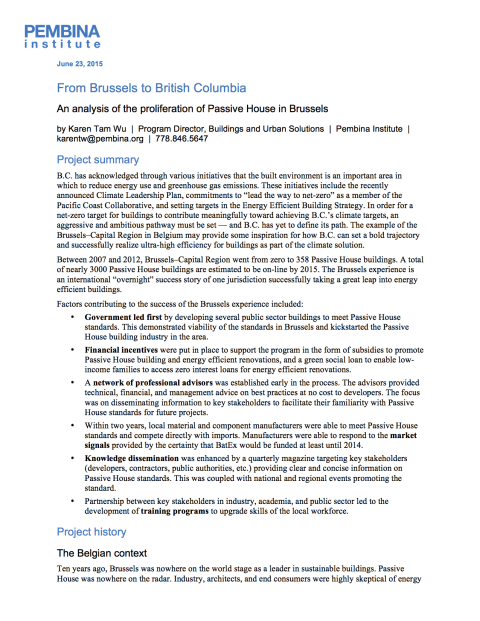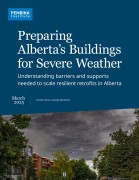B.C. has acknowledged through various initiatives that the built environment is an important area in which to reduce energy use and greenhouse gas emissions. These initiatives include the recently announced Climate Leadership Plan, commitments to “lead the way to net-zero” as a member of the Pacific Coast Collaborative, and setting targets in the Energy Efficient Building Strategy. In order for a net-zero target for buildings to contribute meaningfully toward achieving B.C.’s climate targets, an aggressive and ambitious pathway must be set — and B.C. has yet to define its path. The example of the Brussels–Capital Region in Belgium may provide some inspiration for how B.C. can set a bold trajectory and successfully realize ultra-high efficiency for buildings as part of the climate solution.
From Brussels to British Columbia
An analysis of the proliferation of Passive House in Brussels

Related Research & Analysis

Buildings, Electricity, Equitable Transition, Oil & Gas, Remote Communities, Transportation
September 12, 2024
Publication
A Clean, Resilient Future
Recommendations for advancing British Columbia's net-zero energy economy

Programs
Leading the transition to clean energy requires advancing solutions to today’s energy challenges from various angles.
The Pembina Institute has spent four decades working to reduce the environmental impacts of Canada’s energy production and to provide actionable ideas on how to implement clean energy.




